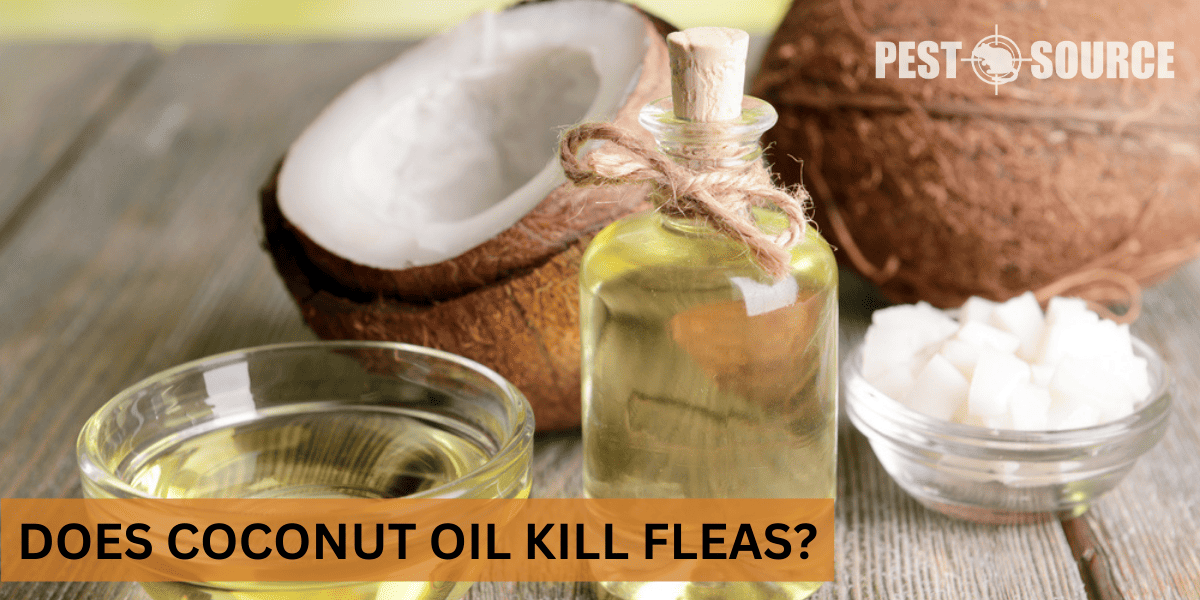Dealing with fleas can be a frustrating and time-consuming issue for both pet owners and their furry companions. Many people are seeking natural and safe alternatives to chemical insecticides to tackle this pesky problem. One such alternative is the use of coconut oil, a versatile and natural solution that has gained popularity for its various health benefits.
In this article, we explore the effectiveness of coconut oil in killing and repelling fleas, its benefits for pets and humans, and comparison with other natural remedies. Discover how to harness the power of this tropical oil for a flea-free home.
POINTS
- Coconut oil can effectively kill and repel fleas due to its insecticidal properties and suffocating effects, making it a safe natural solution for flea control on pets and humans.
- Lauric acid, which constitutes approximately 50% of the fatty acids found in coconut oil, is the primary compound responsible for the flea-killing properties.
- Essential oils such as eucalyptus, lavender, peppermint, lemongrass, and cedarwood can also be effective against fleas due to their strong scents and toxic compounds.
- Coconut oil is generally safe for pets’ skin when used correctly, promoting healthy skin and fur. However, it’s essential to observe pets for any adverse reactions and consult a veterinarian if concerns arise.
- Combining coconut oil with other natural flea control methods, such as essential oils, apple cider vinegar, or dawn dish soap, can increase efficacy and provide comprehensive flea prevention and control.
The Science Behind Coconut Oil and Fleas
What is coconut oil and where can I find it?
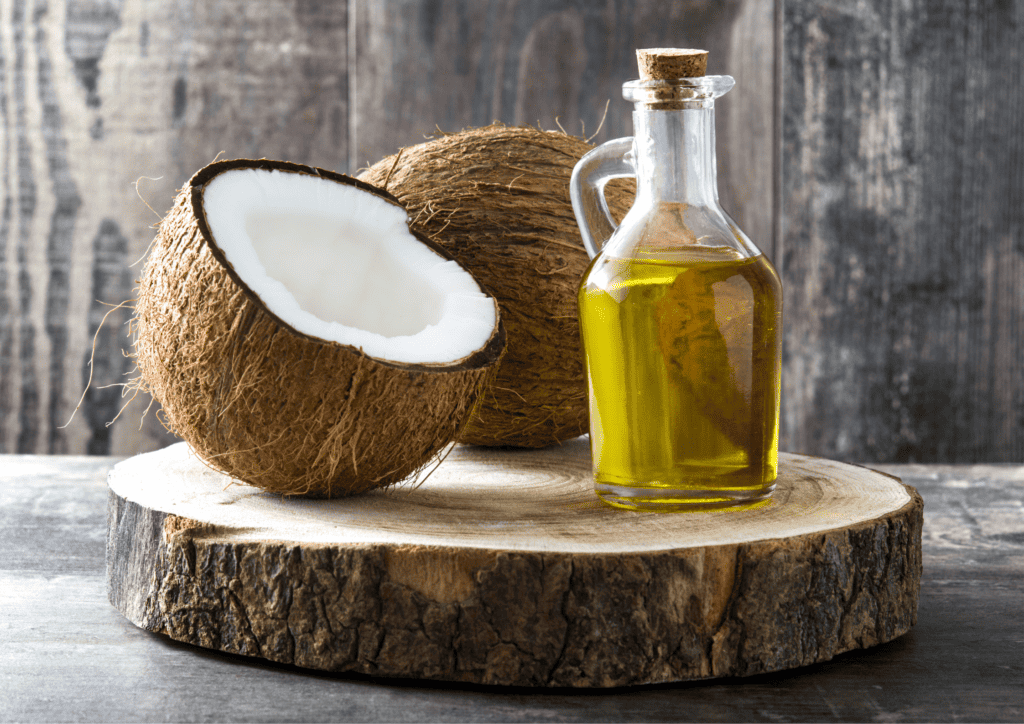
Coconut oil is a highly saturated fat extracted from the meat of mature coconuts. It has gained popularity in recent years due to its numerous health benefits, versatility in cooking and baking, and skincare applications. Coconut oil can be found in most grocery stores, health food stores, and online retailers.
How does coconut oil kill fleas?
Coconut oil kills fleas by suffocating them. When applied to a flea-infested area, coconut oil forms a thick, slippery coating that makes it difficult for fleas to maneuver and breathe. As a result, the fleas eventually suffocate and die, making it an effective way to kill these small pests.
What compound in coconut oil is lethal to fleas?

The primary compound in coconut oil that makes it lethal to fleas is lauric acid. Lauric acid constitutes approximately 50% of the fatty acids found in coconut oil. When ingested or absorbed through contact, lauric acid has been shown to possess insecticidal properties, making it a successful treatment for fleas and other pests.
Is coconut oil good for controlling fleas?
Yes, coconut oil is an effective natural solution for controlling fleas due to its insecticidal properties and suffocating effects. It is also safe to use on pets and humans, as it poses minimal risk compared to chemical treatments. However, as with any remedy, its effectiveness largely depends on the severity of the infestation and proper application.
Does coconut oil repel fleas on humans?
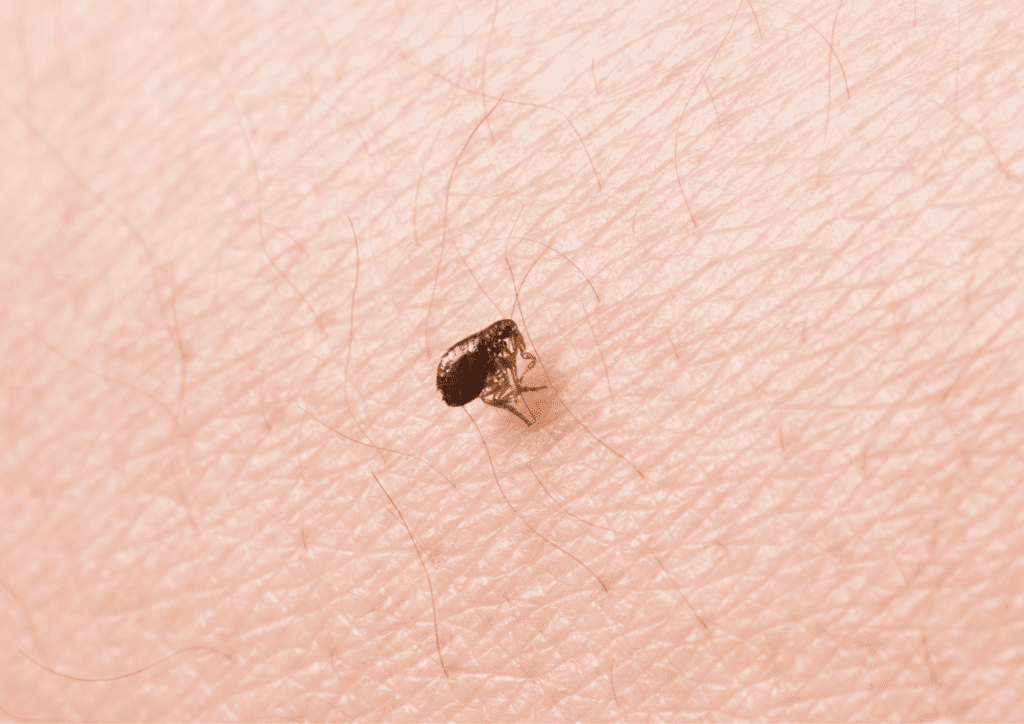
Coconut oil can help repel fleas on humans due to the lauric acid present in the oil. Since fleas are sensitive to lauric acid and other components in coconut oil, they tend to avoid coming into contact with it. Applying coconut oil to the skin acts as a natural barrier, helping to deter fleas and avoid infestations.
The Effectiveness of Coconut Oil for Fleas on Pets
To better understand the effectiveness of coconut oil in combating flea infestations on pets, we’ve compiled a detailed timeline. This table illustrates how quickly you can expect results when using coconut oil on different types of pets, such as dogs and cats, including considerations for younger animals like kittens and puppies.
| Pet Type | Time to Effect | Notes |
|---|---|---|
| Dogs | A few hours to 2 days | Effectiveness varies with the severity of infestation and application. |
| Cats | A few hours to 2 days | Use sparingly; cats may ingest it while grooming. |
| Kittens | Use with caution; consult a vet | Kittens are sensitive; coconut oil should be applied minimally. |
| Puppies | Use with caution; consult a vet | Puppies can benefit, but watch for ingestion and adverse reactions. |
Does coconut oil kill fleas on dogs?

Coconut oil is an effective flea treatment for dogs when applied correctly. The oil suffocates fleas that come into contact with it and helps prevent new fleas from establishing residence on your pooch. Additionally, the lauric acid found in coconut oil has insecticidal properties that further assist in killing fleas and keeping your dog’s skin healthy.
Does coconut oil kill fleas on cats?

Yes, coconut oil can be used to kill fleas on cats. It works in the same manner as it does for dogs by suffocating fleas and utilizing the insecticidal properties found in lauric acid. However, it is essential to carefully apply coconut oil on cats as they are more sensitive to oils and are prone to lick it off their fur.
How long does it take coconut oil to kill fleas on pets?
The time it takes for coconut oil to kill fleas on pets can vary depending on the severity of the infestation and the proper application of the oil. In general, it may take between a few hours to a few days for the oil to completely suffocate and kill off the fleas. It is important to continue treatment for at least a week to ensure that all fleas, including those that were in their egg or larval stages, are eliminated.
Can coconut oil be used on kittens and puppies for flea control?

Coconut oil can be used on most pets, including kittens and puppies, as a flea control measure. However, it is crucial to use the oil with caution on pets younger than eight weeks of age to avoid potential health risks. Always consult a veterinarian before using coconut oil or any other home remedy on kittens and puppies.
What type of coconut oil is most effective at killing fleas?

Unrefined, cold-pressed, virgin coconut oil is the most effective type of coconut oil for killing fleas. This form of coconut oil retains the highest levels of lauric acid and other beneficial nutrients, making it highly potent against fleas and other pests.
Coconut Oil as a Flea Repellent
Does coconut oil repel fleas?
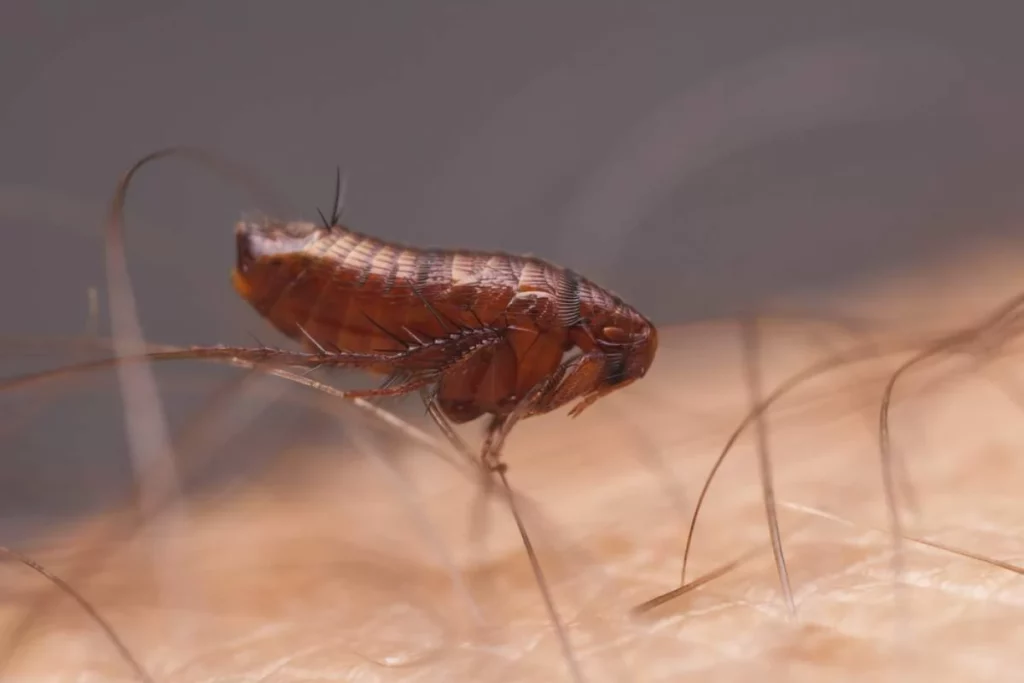
Yes, coconut oil can act as a flea repellent. The lauric acid present in the oil, which has insecticidal properties, deters fleas from coming into contact with surfaces coated in coconut oil. When applied to your pet’s skin and fur, coconut oil creates a natural barrier that effectively keeps fleas away.
Does coconut oil repel fleas on humans?

Coconut oil can help repel fleas on humans as well. By applying the oil directly to your skin or incorporating it into homemade repellent blends with essential oils, you can create an inhospitable environment for fleas, reducing the likelihood of infestations.
How does coconut oil act as a flea repellent?
Coconut oil acts as a flea repellent due to the presence of lauric acid, which fleas are sensitive to and avoid. It creates a slick, oily barrier on the surfaces it’s applied to, preventing fleas from effectively moving and attaching themselves to the host. Additionally, the insecticidal properties of lauric acid help kill fleas that may come into contact with the oil.
Comparisons and Combinations: Coconut Oil and Other Remedies for Fleas
To offer a comprehensive overview of natural flea remedies alongside coconut oil, we have prepared a table that compares their effectiveness, application methods, and safety considerations. This comparison aims to help pet owners make informed decisions on which natural remedies might best suit their needs and those of their pets.
| Remedy | Effectiveness | Application Method | Safety Notes |
|---|---|---|---|
| Coconut Oil | High | Topical application | Safe for most pets; watch for allergies. |
| Eucalyptus Oil | Moderate to High | Diluted topical application or diffuser | Toxic to cats; always dilute and use sparingly. |
| Lavender Oil | Moderate | Diluted topical application or diffuser | Generally safe; consult a vet for cats. |
| Peppermint Oil | Moderate | Diluted topical application | Can be toxic to pets if used undiluted. |
| Apple Cider Vinegar | Moderate | Spray on fur or add to drinking water | Non-toxic; some pets dislike the smell/taste. |
| Dawn Dish Soap | High (instant kill) | Bath | Safe for use; avoid frequent use to prevent skin dryness. |
| Diatomaceous Earth | High | Powder on pet’s coat and home areas | Non-toxic; ensure food grade is used and avoid inhalation during application. |
How does coconut oil compare to other natural flea repellents, such as eucalyptus and lavender?

Coconut oil, eucalyptus oil, and lavender oil can all be effective in repelling and killing fleas. While the lauric acid in coconut oil possesses insecticidal properties, eucalyptus and lavender oils have various chemical compounds that are toxic to fleas. Additionally, the strong scents of eucalyptus and lavender oils make them effective as repellents. However, eucalyptus oil may not be suitable for cats, and it’s essential to consult a veterinarian before using any essential oils on your pets.
How does coconut oil for fleas compare to apple cider vinegar, dawn dish soap, and diatomaceous earth?

Each of these remedies has its unique properties that make them effective against fleas. Apple cider vinegar, while not killing the fleas, can help repel them due to its strong smell and acidity. Dawn dish soap works by breaking down the fleas’ exoskeletons, effectively killing them. Diatomaceous earth, a naturally occurring sedimentary rock, acts as a desiccant, killing fleas by causing them to dehydrate. Although all these methods have their benefits, they may not be as gentle on your pet’s skin and fur as coconut oil.
What essential oils kill or repel fleas?
Several essential oils are known to kill or repel fleas, such as eucalyptus, lavender, peppermint, lemongrass, and cedarwood oils. These oils contain compounds toxic to fleas and emit strong scents that help deter these pests. However, it’s crucial to use essential oils cautiously and always consult a veterinarian before using them on your pets.
Can coconut oil be combined with other substances like apple cider vinegar or dawn dish soap for flea control?
Yes, coconut oil can be used in conjunction with other natural flea control methods like apple cider vinegar or dawn dish soap to create potent flea-killing formulas. However, it is essential to follow proper dilution ratios and application methods to ensure safety, and consult a veterinarian before using these combinations on your pets.
Exploring the Role of Oils in Flea Control

Do fleas have a natural aversion to certain oils such as eucalyptus, lavender, or peppermint oil?
Fleas do have a natural aversion to particular essential oils like eucalyptus, lavender, and peppermint oil due to the toxic compounds present in these oils. The strong scents emitted by these oils can also act as a deterrent, making an environment less attractive to fleas.
What oils can I use to get rid of fleas?
Several essential oils can help get rid of fleas, including eucalyptus, lavender, peppermint, lemongrass, and cedarwood oils. When used correctly, these oils can effectively kill or repel fleas by utilizing their insecticidal and repellent properties.
Can oils be used for flea prevention as well as treatment?
Yes, essential oils and coconut oil can be used for both flea prevention and treatment. By applying oils with flea-repelling properties regularly to your pets and household surfaces, you can create an unwelcoming environment for fleas, helping to prevent infestations before they occur. Similarly, these oils can be used to treat existing infestations by killing or repelling fleas.
Safety and Application of Coconut Oil for Fleas
Is coconut oil safe for pets’ skin and overall health?
Coconut oil is generally safe for pets’ skin and overall health when used correctly. It offers numerous benefits, including keeping their skin nourished, moisturized, and promoting a healthy coat. However, some pets may have allergies or sensitivities to coconut oil, so it’s essential to observe your pet closely for any adverse reactions and consult your veterinarian if concerns arise.
How should coconut oil be applied for fleas on dogs and cats?

To use coconut oil for flea control on dogs and cats, follow these steps:
- Ensure that your pet’s fur is clean and dry.
- Scoop out a small amount of coconut oil and warm it between your hands until it becomes a liquid consistency.
- Gently massage the oil into your pet’s skin and fur, paying close attention to flea-prone areas such as the base of the tail, ears, and underbelly.
- Comb through the fur with a fine-toothed flea comb to remove fleas and eggs.
- Regularly repeat the process to maintain flea prevention.
It’s crucial to consult your veterinarian before applying coconut oil to ensure it’s suitable for your pet.
Can coconut oil be left on a dog overnight for flea control?
Yes, coconut oil can be left on a dog overnight to provide continuous flea control. However, it’s essential to make sure that the dog does not ingest large amounts of the oil by licking it off their fur. You may want to consider putting a shirt on the dog or using a pet-safe barrier to prevent ingestion.
Reviews and Experiences: Coconut Oil for Fleas
What do users say about the efficacy of coconut oil for fleas based on reviews?
Most users report positive results when using coconut oil for flea control on their pets. They commonly mention improvements in their pets’ skin condition, a decrease in itching and scratching, and a reduction in fleas and flea-related issues.
Are there reported cases where coconut oil failed to control fleas?
As with any natural remedy, some users have reported that coconut oil alone was not sufficient to control their pets’ flea infestations. In these instances, it’s essential to explore other methods and consult a veterinarian for professional advice.
What are some recommendations for using coconut oil as a flea treatment?
When using coconut oil as a flea treatment, follow these recommendations:
- Use unrefined, cold-pressed, virgin coconut oil for optimal effectiveness.
- Regularly apply the oil to your pet’s fur and skin to maintain flea prevention.
- Combine coconut oil with other natural flea control methods for increased efficacy.
- Always consult your veterinarian before using coconut oil on your pets.

Understanding Fleas: Their Behavior and Preferences
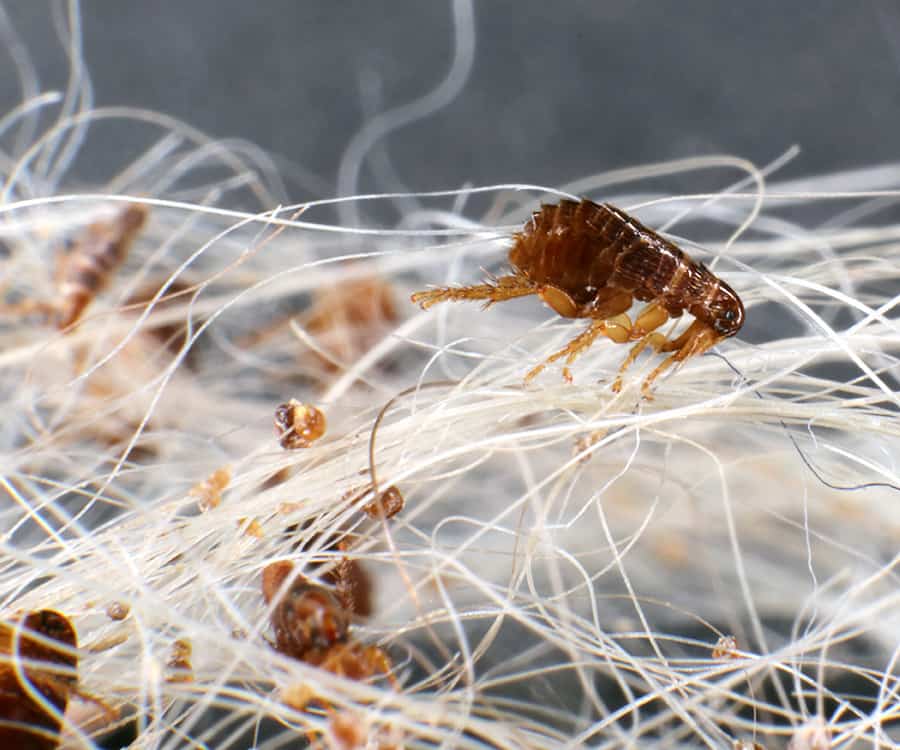
Do fleas have particular dislikes or preferences, such as certain oils or temperatures?
Fleas do have particular dislikes and preferences. They tend to avoid strong-smelling substances like certain essential oils and have been found to be less active in cooler temperatures. Understanding these preferences can help in creating an environment less conducive to fleas, potentially preventing infestations.
What natural oils do fleas detest?
Fleas are known to detest natural oils like eucalyptus, lavender, peppermint, lemongrass, and cedarwood oils. These oils possess strong scents and toxic compounds that help repel and kill fleas.
How can understanding fleas’ behavior and preferences help in effective flea control?
Understanding fleas’ behavior and preferences allows you to create targeted flea control methods by exploiting their vulnerabilities. For instance, using oil-based repellents and maintaining a clean, cool environment can be effective in discouraging flea infestations before they become a significant issue.
Conclusion
What is the final verdict on the effectiveness and safety of coconut oil for flea control?
In conclusion, coconut oil can be an effective and safe solution for flea control on pets and humans, due to its natural insecticidal properties, suffocating effects, and safety for topical use. However, it is crucial to use the oil correctly and consult a veterinarian before introducing any new treatments for your pets. Combining coconut oil with other natural remedies may further increase efficacy, providing comprehensive flea control and a healthier environment for you and your pets.

